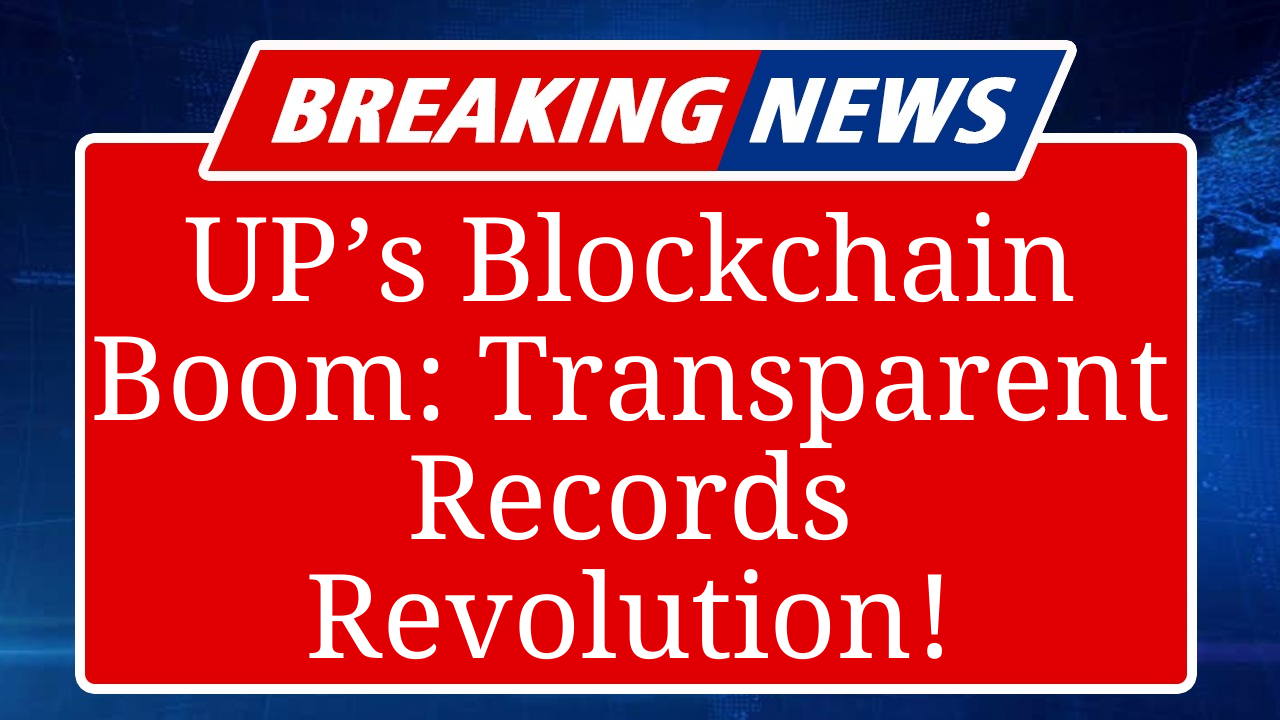Uttar Pradesh is leveraging blockchain technology to enhance transparency and security in land and revenue records, aiming to curb fraud and streamline governance. The state has launched India’s first blockchain-enabled rooftop solar trading platform and plans to expand this tech across departments, positioning itself as a leader in blockchain adoption for public services.
UP’s Blockchain Revolution: Securing Records with Cutting-Edge Tech
Land Record Security Initiative
In 2018, the Uttar Pradesh government, under Chief Secretary Anup Chandra Pandey, announced plans to implement blockchain technology to secure land and revenue records, a move aimed at preventing manipulation and forgery. With 67% of the state’s 220 million population relying on agriculture, transparent land records are critical. The state collaborated with IIT-Kanpur to develop a robust blockchain infrastructure within six months, with a draft notification prepared for the IT department.
First Blockchain-Enabled Solar Trading Platform
Uttar Pradesh made history by launching India’s first blockchain-enabled peer-to-peer (P2P) rooftop solar power trading platform in 2019. Hosted by Uttar Pradesh Power Corporation Limited (UPPCL) and Uttar Pradesh New and Renewable Energy Development Agency (UPNEDA), the pilot project in Lucknow allows consumers to trade surplus solar energy. Partnering with Australia’s Powerledger and India Smart Grid Forum (ISGF), the initiative reduced energy market buy prices by 43% compared to retail tariffs.
Expanding Blockchain to Other Sectors
Beyond land records and energy, the Yogi Adityanath-led government plans to extend blockchain applications to other departments. The technology’s decentralized, tamper-proof ledger is expected to enhance efficiency, reduce redundancy, and ensure real-time data updates across sectors like healthcare, supply chain, and governance. This aligns with national efforts like NITI Aayog’s IndiaChain, aimed at reducing fraud and boosting transparency.
National and Global Context
Uttar Pradesh’s efforts mirror broader blockchain adoption in India. States like Andhra Pradesh and Telangana have piloted blockchain for land registries, while NITI Aayog’s IndiaChain envisions a nationwide blockchain network. Globally, blockchain is transforming sectors like finance and healthcare, with India’s National Blockchain Framework (NBF) offering Blockchain-as-a-Service (BaaS) to foster innovation.
Challenges and Future Prospects
Despite its potential, transitioning legacy records to blockchain poses challenges, such as resolving disputes over existing land data. Experts suggest incentivizing gradual adoption to ensure accuracy. Uttar Pradesh’s proactive approach, backed by regulatory amendments for P2P energy trading, positions it as a potential leader in blockchain-driven governance.
Disclaimer: This article is based on reports from Business Standard, Business Today, Mercom India, and other publicly available sources. Information is accurate as of September 2, 2025, and subject to change. Readers are advised to verify details through official government channels.

